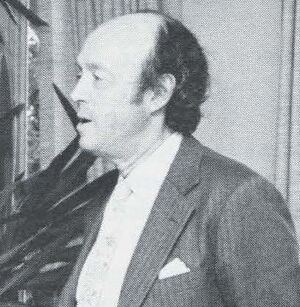Anthony Lewis
( journalist) | ||||||||||||||||||||||||||||||||
|---|---|---|---|---|---|---|---|---|---|---|---|---|---|---|---|---|---|---|---|---|---|---|---|---|---|---|---|---|---|---|---|---|
 | ||||||||||||||||||||||||||||||||
| Born | Joseph Anthony Lewis March 27, 1927 The Bronx, New York | |||||||||||||||||||||||||||||||
| Died | March 25, 2013 (Age 85) Cambridge, Massachusetts | |||||||||||||||||||||||||||||||
| Nationality | United States | |||||||||||||||||||||||||||||||
| Alma mater | • Horace Mann School • Harvard College | |||||||||||||||||||||||||||||||
| Spouse | Linda J. Rannells | |||||||||||||||||||||||||||||||
| Member of | The American Academy in Berlin/Distinguished Visitors | |||||||||||||||||||||||||||||||
US writer for the New York Times. According to Chomsky "as far to the critical extreme as you can find" allowed in the corporate media Overton window.
| ||||||||||||||||||||||||||||||||
Anthony Lewis was a journalist described as one of the "defining liberal voices"[1], who wrote, among other things, editorials for the New York Times and articles for the New York Review of Books. He also worked at the paper as an editor (1948-1952), and as Bureau Chief in its Washington D.C. (1955-1964) and London (1952-1955) offices. He also worked for the Democratic Party and wrote articles for the Washington Daily News.[2]
Background
Lewis grew up in New York, attended the Horace Mann School there and later Harvard University, from which he graduated with a Bachelor of Arts. While at Harvard, he wrote for The Harvard Crimson, a daily newspaper run only by Harvard students. He was married to Margaret H. Marshall and had three children in his first marriage.
Noam Chomsky described Lewis's place in the Overton window of allowed limited ideas in corporate media:
Take, say, Anthony Lewis, who’s about as far to the critical extreme as you can find in the media. In his final words evaluating the war in The New York Times in 1975, he said the war began with “blundering efforts to do good” but by 1969, namely a year after the American business community had turned against the war, it was clear that the United States “could not impose a solution except at a price too costly to itself,” so therefore it was a “disastrous mistake.” Nazi generals could have said the same thing after Stalingrad and probably did. That’s the extreme position in the left liberal spectrum[3]
.
Lewis won two Pulitzer Prizes - the first in 1955 for his reporting on a US government program and particularly on the firing of a Navy employee who did not know the reasons for his firing (he was reinstated thanks to Lewis' work); he received second prize in 1963 for his coverage of the United States Supreme Court. He also wrote frequently on the Court of Justice and on constitutional matters.
Lewis taught at Columbia University's Graduate School of Journalism since the mid-1970s. He lectured at Harvard from 1974 to 1989 and has long been a guest lecturer at various colleges and universities (e.g. in Arizona , Illinois , California and Oregon ). In 1991 Lewis was elected to the American Academy of Arts and Sciences and in 2005 to the American Philosophical Society.[4]
References
- ↑ http://www.thecrimson.com/article/2013/3/26/Lewis-Reporter-Dies-Journalist/
- ↑ http://www.nytimes.com/2013/03/26/us/anthony-lewis-pulitzer-prize-winning-columnist-dies-at-85.html?pagewanted=all
- ↑ https://chomsky.info/20080123/
- ↑ https://search.amphilsoc.org/memhist/search?creator=Anthony+Lewis&title=&subject=&subdiv=&mem=&year=&year-max=&dead=&keyword=&smode=advanced